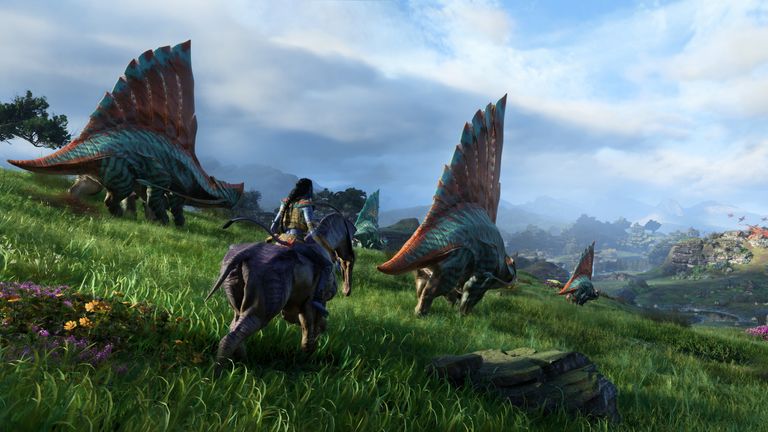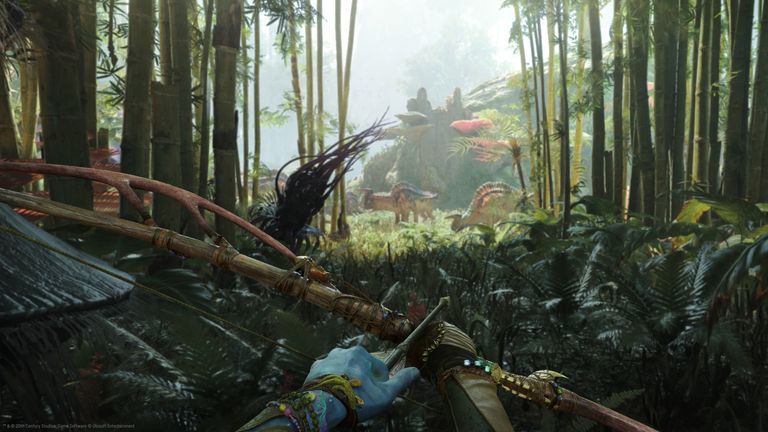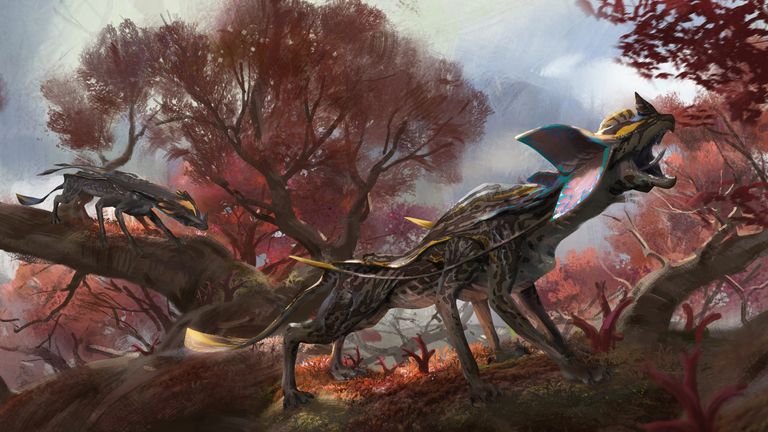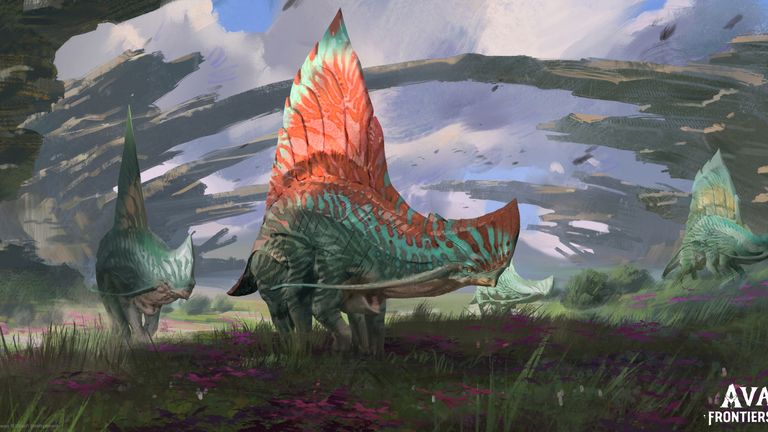Willy Wonka will get lots of bums on seats at the cinema this month, but it is hard to envisage him getting close to the box office takings amassed by last year’s Christmas number one.
Avatar: The Way Of Water grossed a whopping $2.3bn (£1.8bn) following its long-awaited release 12 months ago, only topped on the all-time list by its own predecessor and the latest Avengers.
Glory in the visual effects category at the Oscars came as no surprise given the fantasy setting of Pandora and cast of big blue Na’vi characters heavily owe their existence to computers.
Parts of the production were even handled by new techniques usually associated with video games, with director James Cameron long known for embracing technology to push storytelling forward.
The film’s success puts a certain amount of pressure on the shoulders of the team pushing the Avatar story forward again this year – but perhaps fittingly, this time it really is in video game form.
From the big screen to your games machine
Avatar: Frontiers Of Pandora is the final blockbuster of what has been another big year for the industry. It came to PlayStation, Xbox, and PC this week via French publisher Ubisoft, best known for the Assassin’s Creed games.
Creative director Magnus Jensen, of the company’s Swedish studio Massive Entertainment, is well aware of the expectations that come with delivering a new entry in the Avatar series.
“It needs to have a completely new story, new environments, new creatures,” he says.
“And be a fantastic, rich spectacle – a real rollercoaster ride.”
Frontiers Of Pandora is an open world game, allowing players to create their own Na’vi and explore the vast titular planet at their own leisure. Drawing on the lush and colourful environments from both films, the game lets them roam the plains on foot and soar above them on the backs of winged creatures.
Played primarily from a Call Of Duty-style, first-person perspective, players may also need to hunt said creatures to survive and take the fight to the RDA – the same villainous corporation from the films, kitted out with rather big guns and even bigger mechanical suits.
Jensen says his team worked with Cameron’s Lightstorm Entertainment throughout the game’s long development, which began way back in 2017.
Just as my nan will often mistake a game of FIFA (excuse me, EA Sports FC) for a real football match when she’s round for Christmas, Jensen will hope Frontiers Of Pandora is similarly effective at convincing people they’re really taking part in one of the films.
The developers dare not stray too far from the Avatar “style guide”, he says. Fans looking for their Pandora fix while waiting for the next film, which isn’t due until 2025, demand an authentic experience.
“We are very mindful of how our game takes place in the Avatar timeline – we are right there at the events of the new and upcoming movies,” he says. “We heavily shared the art direction of the films, and it all needs to fit together in the same lore and timeline.”
Read more gaming interviews:
How God Of War star broke the glass ceiling
Childhood fans are now making Call Of Duty themselves
Meet the man behind gaming’s most infamously violent series
The great convergence
It’s a challenge increasingly faced by developers and Hollywood crews alike, as the film and game worlds converge.
Three of 2023’s biggest games are Hogwarts Legacy, Marvel’s Spider-Man 2 and Star Wars Jedi: Survivor, all needing to satisfy the notoriously demanding fans of those books, comics, and films.
Meanwhile, only Barbie has stopped Nintendo’s Super Mario from being the year’s highest grossing film, and HBO’s adaptation of the PlayStation game The Last Of Us is tipped to win plenty of awards.
As successful as these adaptations have been, it’s led to accusations of a dirge of creativity and original ideas.
But Jansen believes it’s testament to his industry, how games have “gone from being fun things for kids to something for everyone”.
“It has become any other piece of entertainment, so it’s natural that films take inspiration from us in the same way as books and plays prior to that, and we take inspiration from them,” he says.
But unlike a film, which offers the same experience to every viewer, an open world game like this one has more narrative wriggle room.
The writing team – which includes Chella Ramanan, who has simultaneously been working on a game about Britain’s Windrush migration scandal – have to pen a story that doesn’t just account for players going from A to B, with side stories and characters they may never meet unless they explore.
As true to the films as he wants Frontiers Of Pandora to be, Jensen says it’s critical to “let a game be a game”.
“The player is an actor – and interactivity is what makes a game more than anything else.”






